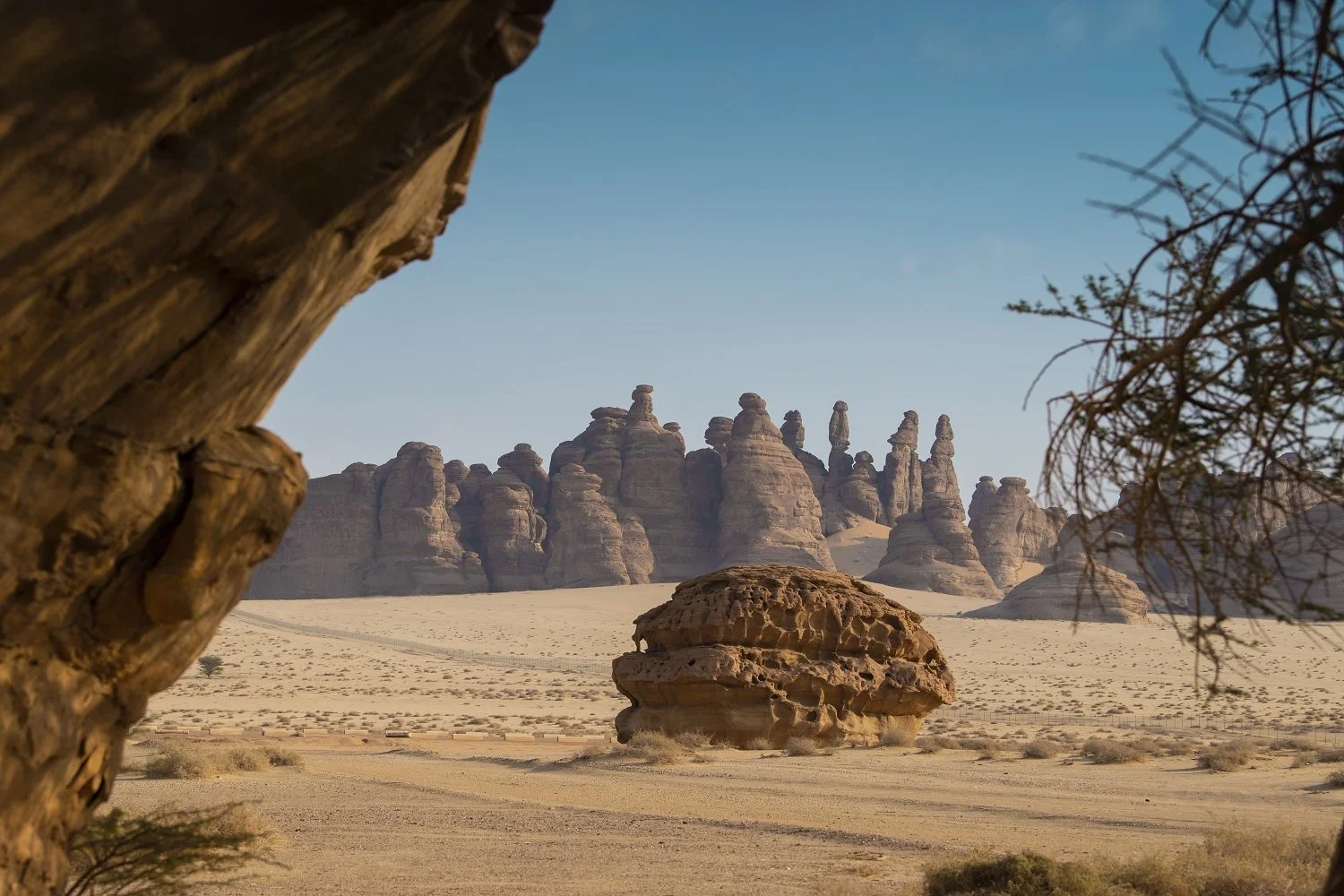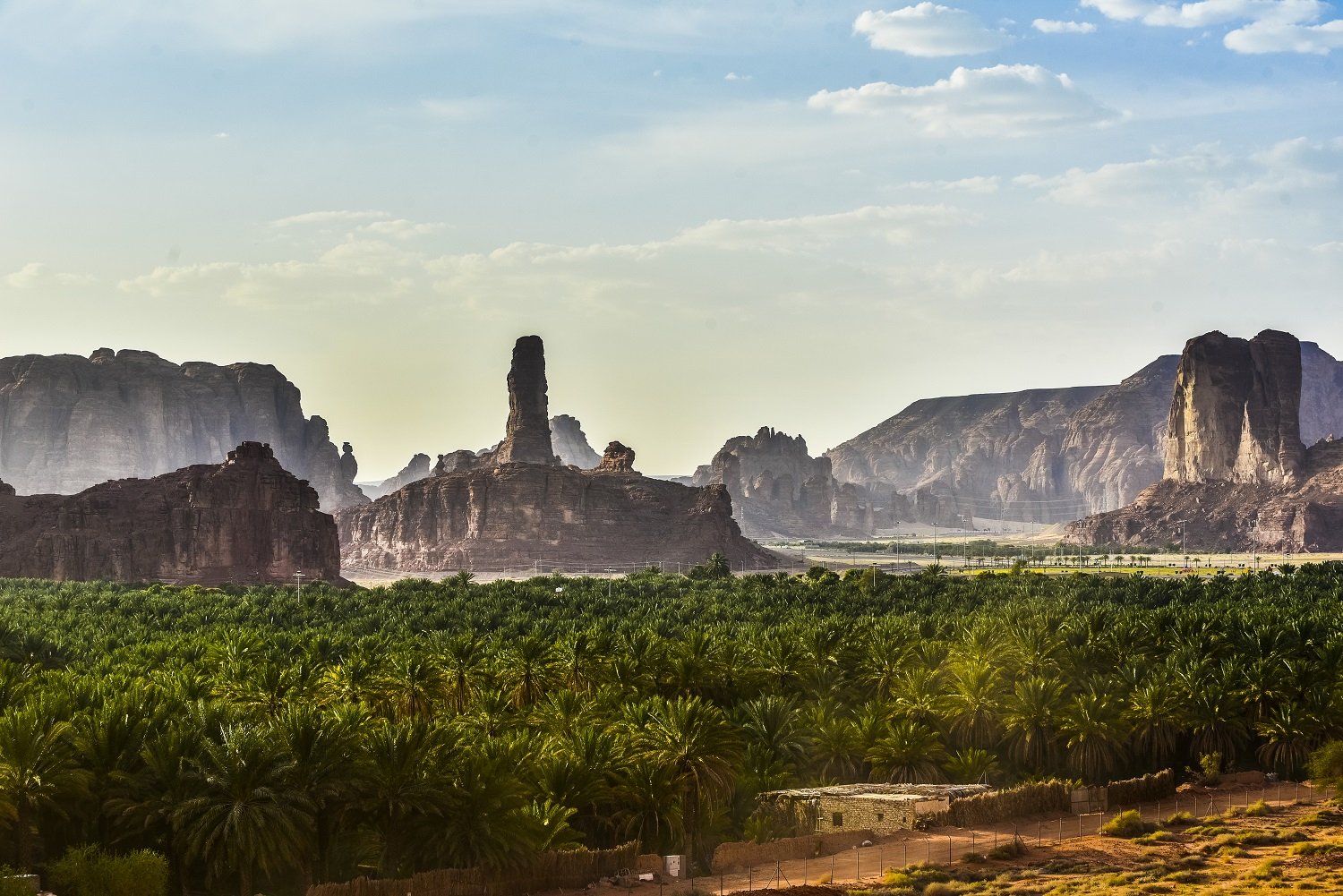Fest Track On Sirk TV Print Interview: Stephen Strachan Of Film AlUla [Red Sea International Film Festival 2021] - Part I
The beauty of Saudi Arabia many have seen reflected in aspects of deserts and isolated landscapes but the possibilities of different backdrops as well as beautiful historical spaces are finally opening up in many ways as locations for filmmakers and hopefully,in the foreseeable future, tourism as well. With the Russo Brothers' film “Cherry” with Tom Holland for Apple Original Films shooting partially last year in the region last year and the film “Kandahar” starring Gerard Butler beginning production soon, the future of filming in Alula looks bright.
During a luncheon for the Film AlUla at the Red Sea International Film Festival in Jeddah, Saudi Arabia, Fest Track sat down for an interview with Film AlUla Commissioner Stephen Strachan to talk about geography, recent productions and the creation of infrastructure.
Here is Part I of that conversation
How close is the AlUla region from where we are right now in Jeddah?
The drive from Jeddah to AlUla is a seven-hour drive. Saudi Arabia is enormous. The Arabian Peninsula is I think two-thirds the size of western Europe.
AlUla is in the northeast of the country, right?
Northwest.
So is it closer to the Red Sea or is it closer to the Persian Gulf?
This is the Red Sea out here. So the Hejaz region, which is where you are at the moment, is down the west of Saudi Arabia, and that's the sort of somewhat the Ottoman region. It's where all the hatch routes went from Hejaz into Mecca. Jeddah is essentially the port of Mecca, which is why you got such a mix of beautiful population. You got everyone here historically. And then AlUla is on the Incense Routes, the ancient Incense Route that went from Yemen and brought all the spices and incense up into the Near East and the Mediterranean. So we're on that route AlUla.
That keys into the topography and what people can film here. Along those routes, there's probably so many different kinds of things because when people think of Arabia, they think of a certain thing, but there's so many other different possibilities here.
Look, in Tubuk, it shows in the winter. Yeah. It's cold in AlUla at the moment. You'd be wearing a jacket.
Do you have ski resorts?
I don't think it's that cold. It snows about two days a year but it does snow. And then in the south, if you go down to Al Assir or Jizan, Jizan's got jungle. We went to Assir in July, and we got caught in a rainstorm and it hailed as well. We went to a region called Soudah, which is currently being developed for tourism. And that's a traditional place that Saudis used to go for tourism as well. They used to go see in the summer because it rains.
So do different commissions in the country split up certain areas in terms of filming locations?
The royal commissions are more about certain industries. So you got royal commission of Yanbu and Jubail, which is about oil, and that was set up in 1917. You've got a royal commission for Riyadh, and I believe a royal commission for Mecca as well. So we're the royal commission for AlUla. We act essentially as a local authority. We're doing everything for the conservation and preservation, but we're also doing the water table and putting in roads. We've got Master Plan 1, which is our masterplan to build out the tourism sites, put in museums, make it more connected by road and by train, beautify AlUla as well.
What kind of timeline, are you looking at? Because “Kandahar” just started, but the thing is, there is has to be a certain amount of infrastructure for that size of film. Now, granted, that's a decent-sized film, but you're probably thinking of even larger scale films.
Absolutely. I mean, at the moment, we're just in the middle of building a film resort. So it's accommodation and office space just directly for film. So we've got 78 booths [domiciles] on the ground at the moment.
In Hegra?
No, in AlUla Town. So 78 booths. So you got a sitting room area, a little kitchenette and bathroom, and a bedroom at the back, a little patio as well.
So what is filming right now?
Beside “Kandahar”?-- well I'll put it into perspective. We've had 61 productions throughout the year, small ones, this year, including documentaries, Nat Geo, Steve Backshall, France, BBC - various commercials, Bentley, Mercedes.
“Kandahar” though is the first big one. Wait no...you had “Cherry” [with Tom Holland].
We had “Cherry” back in 2020. I just arrived on the ground, literally, in 2019, and they're like, "You're going to do a war movie." I was like, "Oh, my gosh.”
And it was the Russo Brothers who had just done “Avengers: Endgame”. But did they want a certain level of location and infrastructure? Did they send out film locations people?
Yes. They'd sent out film locations people beforehand. I think the production designer had come before I got on the ground. And it was kind of mapped out, what they were looking for, and then I arrived on the ground. We did a location recon with the Russo Brothers. They were impressed. It is a beautiful, stunning landscape they filmed in AlUla. We shot for three days. I think it was probably late January or early February 2020. And one day at in an oil refinery in December outside of Riyadh. But I mean, just to put it into perspective -- that was the first major bit of shooting by a Hollywood production in Saudi Arabia, and it is a war movie. So we needed the help of the Ministry of Defense and they provided us with military transport vehicles, which we then [translated] into American [vehicles].
Where did all that hardware have to come from in relation to filming?
From Tubuk. They've got one of the largest military bases just three hours up the road from AlUla there, up near the northernmost city.
So not too far...
It's far enough. Yeah. And they would arrive, actually, on military timing. We asked them to come at 9 o'clock in the morning. (laughing) They arrived at 8:58.
So when you arrived here on the ground, was there already something in terms of a film commission already set up?
I had worked with a local production company called Nebras Films -- they were ahead of the curve. They'd already put in film location trailers. They had a lot of equipment on the ground. So we brought a lot up from Riyadh. And I worked with His Highness' office, Minister of Culture's office, directly on this project. And we worked with the Ministry of Defense and the Ministry of Interior. And yeah, as I said, we had Army personnel carriages. We had three tanks, Abrams tanks. We had seven Black Hawk helicopters, and we had four F-15 jets.
How did Saudi Arabia start to open up to the global film industry in the past few years including obviously the films we have been speaking of and the Red Sea International Film Festival?
Well, really, it's down to-- there's a lot of political goodwill. And the governor of AlUla, His Highness, Prince Badr Al Saud. He's one of the most prominent princes, and he's also the Minister of Culture as well. So you got the Ministry of Culture, which has the Saudi Film Commission, and then he's also governor of AlUla. He's just above our CEO, and is very much involved in work conditions.
To learn more about Film AlUla, visit filming.experiencealula.com
By Tim Wassberg


